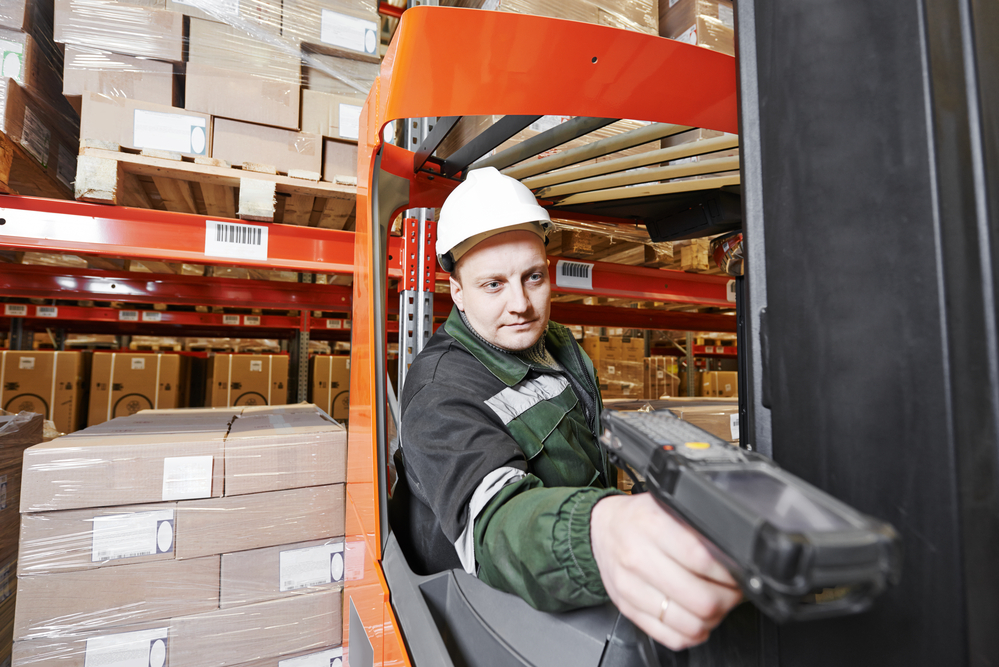No one would call warehouse operations a relaxing or luxurious job. In fact, it can be hectic. That said, operating a warehouse puts your business at a pivotal spot along the supply chain. You have loads coming in for storage or being shipped out to their destination. How quickly you unpack or load is important—as is doing that with as few errors as possible.
Fortunately, technology never stops looking for ways to make warehousing more productive and efficient. One trending technology is called RFID, which uses tags and scanners to store or receive information. RFID technology is widely available, but should you use it?
If you want to get more out of your warehouse, the answer is yes.
What is RFID?
Radio frequency identification technology, also known as RFID, is kind of like GPS but more modern. You can use RFID tracking technology to find assets or people. Most commonly, the RFID tags are affixed to products that require some kind of handling or storing. The data stored in the tag has a radio signal that is picked up by readers within the vicinity.
How Does RFID Technology Work?
An RFID tag contains a microchip that has information stored within and a tiny antenna to receive a signal from the scanner. The chip and antenna are protected by a durable plastic cover. Often, the tag has a sticky side, allowing it to be attached to an object.
How RFID Benefits Warehousing
An RFID tag is attached to an item, and that tag is picked up by the RFID reader. But how does that take warehousing to the next level?
Here are the benefits of RFID technology in the warehouse:
Reduces Human Error
RFID technology has the ability to reduce the margin of human error and reduce labor costs. How? Because the tags can automatically transfer information to the reader. Some of the most common issues in a warehouse that uses barcodes is that those codes are read incorrectly or skipped over.
If you are using warehouse management software or an ERP like SAP Business One, scanning an RFID tag will update the status of inventory automatically. Whenever the item arrives, is stored, picked-and-packed, shipped and received, you will receive a notification.
Since staff no longer needs to individually check products and register the details manually, operational costs are reduced.
Helps Automated Tracking
As mentioned above, packages with RFID tags are tracked by the WMS or ERP system you have. The information is stored in that management system, and you can look at the details whenever you need. If you want to make the process even easier, you can implement an RFID asset tracking system.
Plus, if you were worried about saving time, you should know that one RFID scanner can manage about 200 tags at once. This makes the entire unloading, unpacking, sorting, and placing process much more swift.
Flexible Placement and Durability
Since RFID tags are stickers, they can be applied and removed from wood, metal, or plastic. This means that the tags can be placed where it is best, and they don’t have to be visible to be scanned by the RFID scanner. This saves time, since the staff member won’t have to search the entire pallet or package for the RFID tag. Rather, they can just turn on the scanner and receive the reading.
Furthermore, unlike printed barcodes, RFID tags tend to be more durable and won’t be destroyed in inclement weather or with tampering. You can also encrypt the tags to make the data more secure.
Storage Capacity
Did you know that RFID tags have far more data storing capabilities than a barcode? A single RFID tag can store about 2,000 bytes, which is 100 times more data than a barcode. Since you can store more information, this helps warehouses track the package or product more accurately.
RFID vs Barcodes in the Warehouse
Companies that are looking for a cost-effective and user-friendly system to inventory will love RFID technology. You can manage inventory much more seamlessly and limit errors. Compared to barcodes, RFID technology can outlast indoor and outdoor environments. They also have better resistance to abrasives, solvents, and chemicals.
On the other hand, barcodes do not hold as much information. The one strength of barcodes is that they are unaffected by metal and liquid—both of which can affect the signal strength in an RFID tag.
If your warehouse stores a lot of metal, barcodes might be better. Using an RFID tag on metal requires a special design, adding to the overall cost.
Start Using RFID Technology Today
There are many benefits to implementing RFID tags for your business. You get more accuracy, efficiency, and real-time updates on your inventory. Such insight will keep your business ahead. Integrating RFID technology will bring your warehouse to the next level and make it much more competitive. If you want to lower operating costs while driving towards success, give WiSys a call. We have complete RFID, WMS, and ERP solutions for your business.


